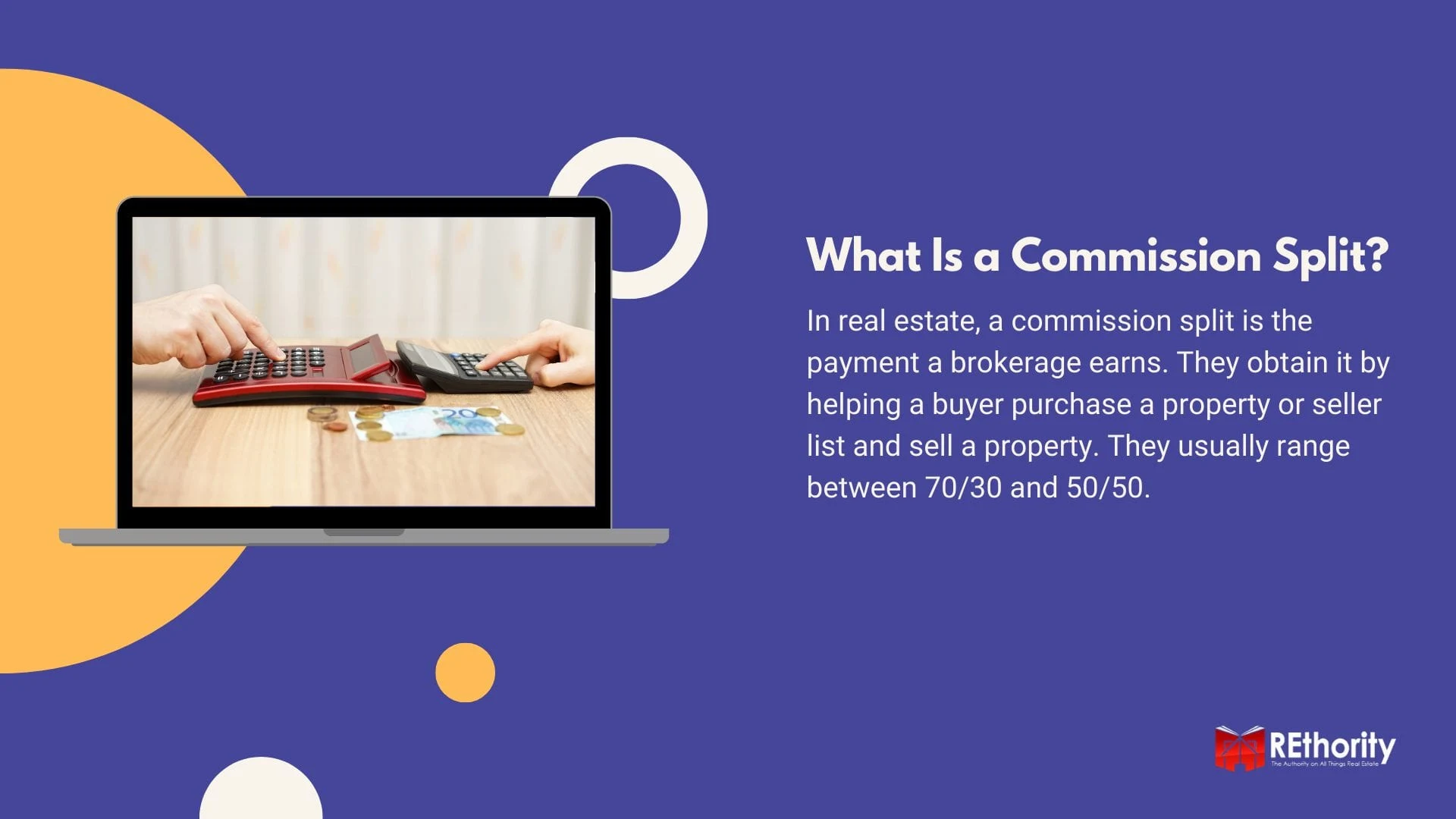In real estate, a commission split is the payment a brokerage earns. They obtain it by helping a buyer purchase a property or by listing and selling a property.
How a commission is split largely depends on which brokerage you work for, but it usually ranges between 70/30 and 50/50.
What Is a Commission Split?
If you’re looking to get into the real estate industry, finding out how commissions are split at prospective brokerages will be vital, since it’s going to help determine your paycheck.

All transactions will be run through the broker you work for, so the gross commission you receive will come from their pockets.
When a sale occurs, the commission is usually split evenly between the buying and selling companies.
From there, the split depends on the specific brokerage policy and can range from a 64/30/6 model to a 100% agent commission.
With the 100% commission, you, as the agent, will have to pay fees but can keep all the commissions you make.
Fixed Commission Splits

Andrey_Popov/Shutterstock
As the name suggests, a fixed commission split is when the percentage shared between an agent and their broker remains the same (fixed). It will not change, regardless of production objectives or sales.
The most common fixed commission split tends to be done using a 60/40 ratio. These commissions are agreed upon in the beginning, but as time goes on, higher-performing agents tend to ask for better compensation.
Despite this system being easy to use for calculations, it can backfire as your best performers may take their talents elsewhere because of the rigid payment structure.
Graduated Splits

Nathapol Kongseang/Shutterstock
For those previously mentioned agents who have been performing well, this structure should suit them better.
In this situation, an agent can start off with a simple 50/50 agreement, then progress to as high as 90/10 should their performances merit it.
These increases will be achieved by reaching financial targets. These objectives can provide a genuine incentive for the agent to perform at their highest level since a higher commission ratio will be the just reward for higher sales production.
Some agencies put a cap on this version of the commission split. This cap activates at a pre-established level. Once the brokerage obtains a commission, they allow the agent to keep the rest.
On top of this, it’s not uncommon for the agency to charge a transaction fee once the cap is reached and to help cover closing costs, which are minimal.
The 100% Commission Model

Klyaksun/Shutterstock
If you’re feeling greedy, the 100% commission split at first sounds like the deal for you, but there are factors to consider before proceeding. The way a brokerage makes money out of this deal is by imposing fees.
Notably, there are quite a few of them, including:
- Monthly Fees: a flat rate to cover expenses for office materials such as phones and copiers.
- Conveyance Fees: a standard rate charged at closing.
- Risk Reduction charges: for omissions, insurance, and errors
- Administrative costs: a fixed price to cover basic managerial elements
- Level of Support: This can include advertising or any other form of assistance to close the transaction.
So, What Is a Real Estate Commission Split?
There is so much more to this subject, and it’s not advisable to make a decision until you discuss the commission split with your brokerage.
In the end, how much you think you’re going to make should determine the commission split you choose.
If you’re new, then it would be advisable to get a graduated commission so your income will reflect your increased experience and sales completion.
Just be sure to check over any potential caps and fees, and then you should be fine.

